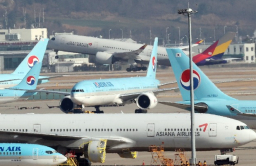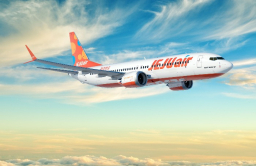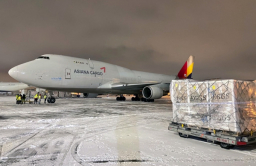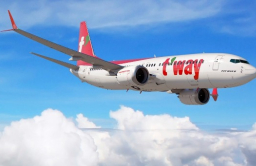-
KOSPI 2577.27 -2.21 -0.09%
-
KOSDAQ 722.52 -7.07 -0.97%
-
KOSPI200 341.49 +0.02 +0.01%
-
USD/KRW 1396 -2.00 0.14%
MBK drops out of Air Premia’s Asiana cargo unit takeover bid
Airlines
MBK drops out of Air Premia’s Asiana cargo unit takeover bid
Seoul-based Meritz Securities may become Air Premia's new partner with a $218 million investment
By
Jun 12, 2024 (Gmt+09:00)
2
Min read
News+
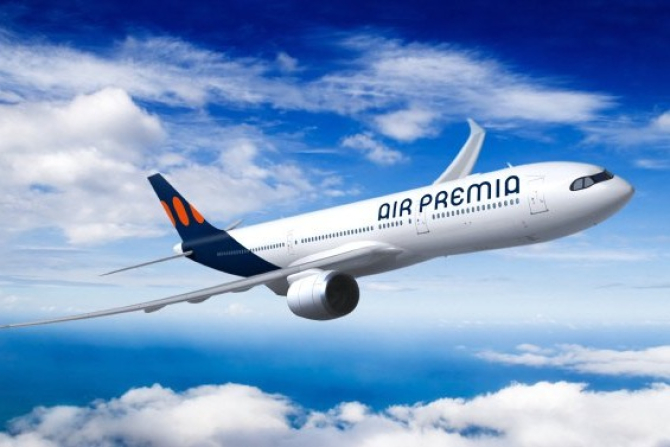
Asian private equity firm MBK Partners has dropped out of a plan to back 300 billion won ($217.9 million) for South Korean budget airline Air Premia Inc.'s acquisition of the cargo business unit of Asiana Airlines Inc. Meanwhile, Seoul-based brokerage firm Meritz Securities Co. is eyeing a partnership with the low-cost carrier (LCC).
The PE house, which had considered investing in Air Premia via its 2.1 trillion won special situation fund, has determined not to join the deal estimated at around 500 billion won, according to investment banking sources on Wednesday.
MBK, which initially considered backing Jeju Air Co. for Asiana’s cargo unit deal, decided to team up with Air Premia last month as Jeju Air dropped out of the race. The North Asia-focused PE manager mulled investing 300 billion won in Air Premia’s convertible bond issue.
As MBK pulled out, Meritz Securities has submitted a letter of confirmation to Air Premia for a 300 billion won investment in the LCC, sources said.
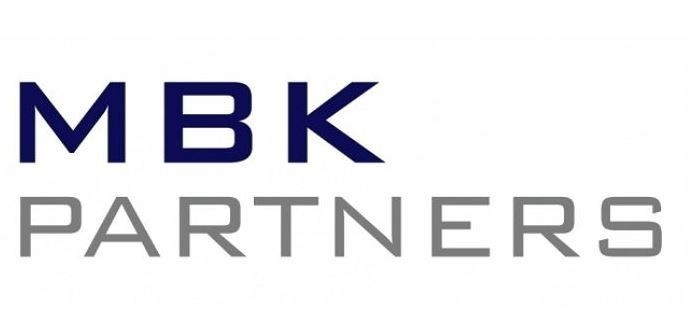
PLAN CHANGED
The budget airline was planning to use its cash, and tap into Seoul-based Pavilion Private Equity Co.’s project fund and MBK’s second special situation fund to finance the purchase of Asiana’s cargo unit.
But the LCC had to shift its plan amid concerns that funding from MBK, which has overseas investors as major limited partners, may not receive Korean government approval to finance the acquisition.
Under the country’s Aviation Business Act, a company with a foreign representative, or in which a foreigner holds a 50% or greater stake, can’t own a Korean airline.
There are three bidders for Asiana’s cargo unit – Air Premia, local budget airline Eastar Jet and cargo-dedicated LCC Air Incheon. Korean Air Lines Co., the seller of the cargo business, is expected to select a preferred bidder as early as mid-June.
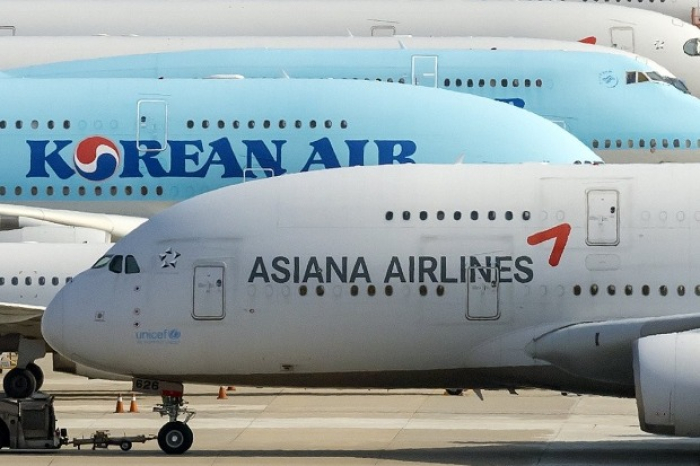
Korean Air, the country’s No. 1 full-service carrier, is selling the cargo unit in an effort to receive a definite nod for its 1.8 trillion won acquisition of the biggest crosstown rival Asiana, which is forecast to create one of the world’s 10 largest airlines.
The European Commission, the European Union’s antitrust body, has approved the merger of the two airlines, on the condition that Korean Air divest of its four lucrative European passenger routes and Asiana’s cargo business.
Korean budget carrier T’way Air Co. has agreed to take over Korean Air’s operations on the four routes – Seoul Incheon-Paris, Seoul Incheon-Rome, Seoul Incheon-Barcelona and Seoul Incheon-Frankfurt.
Korean Air has obtained approval or completed the review process of 13 of the 14 regulatory authorities across the world. It is only awaiting the nod from the US.
Write to Jun-Ho Cha at chacha@hankyung.com
Jihyun Kim edited this article.
More To Read
-
Apr 25, 2024 (Gmt+09:00)
-
Jun 03, 2024 (Gmt+09:00)
-
Apr 05, 2024 (Gmt+09:00)
-
Feb 28, 2024 (Gmt+09:00)
-
Feb 14, 2024 (Gmt+09:00)



